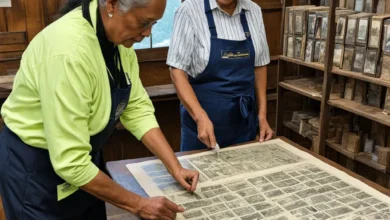5 Benefits of Volunteering for Seniors: Staying Active & Connected

Did you know that seniors who volunteer regularly are 63% less likely to experience cognitive decline? As we age, staying active and connected becomes increasingly important for our overall well-being. One powerful way for seniors to achieve these goals is through volunteering. In this post, we’ll explore five key benefits of volunteering for seniors that can help you lead a more fulfilling and healthy life.
1. Improved Physical Health
Volunteering isn’t just good for the soul – it’s great for your body too! Many senior volunteer activities can help you stay physically active without feeling like you’re exercising. Imagine spending a sunny morning tending to a community garden or taking shelter dogs for walks. These activities not only contribute to worthy causes but also keep you moving.
Here are some potential physical health benefits of volunteering:
- Increased mobility
- Better cardiovascular health
- Improved strength and flexibility
- Enhanced balance and coordination
A study published in the Journal of Gerontology found that adults over 60 who volunteered for at least 100 hours a year had a 44% lower risk of hypertension compared to non-volunteers. So, by giving your time, you’re also giving yourself the gift of better health!
2. Enhanced Mental Well-being
Have you ever noticed how good you feel after helping someone? That warm, fuzzy feeling is often called the “helper’s high,” and it’s not just in your imagination. Volunteering can boost your mood and reduce stress in significant ways.
When you volunteer, your brain releases feel-good chemicals like oxytocin and serotonin. These natural mood boosters can help combat feelings of depression and anxiety. Plus, the sense of purpose and fulfillment that comes from making a difference in your community can be incredibly uplifting.
Dr. Sarah Johnson, a geriatric psychologist, explains: “Volunteering provides seniors with a sense of purpose and accomplishment. This can be especially important for those who have retired and may be struggling to find meaning in their daily lives.”
By engaging in senior volunteer activities, you’re not just helping others – you’re also investing in your own mental health and happiness.
3. Cognitive Stimulation and Brain Health
Keeping your mind sharp is crucial as you age, and volunteering offers excellent opportunities for cognitive stimulation. Many senior volunteer activities challenge your brain in new and exciting ways, helping to maintain and even improve your mental acuity.
Consider these volunteer roles that can give your brain a workout:
- Tutoring students in subjects you’re passionate about
- Serving as a museum docent, sharing knowledge with visitors
- Helping at a local library, organizing books and assisting patrons
These activities not only benefit your community but also provide significant cognitive benefits:
- Improved memory
- Enhanced problem-solving skills
- Delayed onset of age-related cognitive decline
A study published in the Journal of Gerontology found that older adults who volunteered showed improved executive function and memory compared to those who didn’t volunteer. This suggests that staying mentally active through volunteering could help keep your mind sharp well into your golden years.
4. Social Connection and Reduced Isolation
As we age, maintaining social connections becomes increasingly important for our overall well-being. Volunteering provides excellent opportunities to meet new people, form relationships, and combat feelings of isolation that can sometimes accompany retirement or the loss of loved ones.
Volunteering can help you:
- Meet like-minded individuals who share your interests
- Form new friendships across different age groups
- Stay connected with your community
Moreover, volunteering can strengthen existing relationships. For example, volunteering with family members can create shared experiences and memories, bringing you closer together.
Here’s a comparison of the social benefits of different types of volunteer activities:
| Volunteer Activity | Social Benefits |
|---|---|
| Community Garden | Meet neighbors, share gardening tips, work together towards a common goal |
| Animal Shelter | Bond with fellow animal lovers, interact with pets and their potential adopters |
| Senior Center | Connect with peers, share life experiences, participate in group activities |
| Youth Mentoring | Bridge generational gaps, learn from younger perspectives, share wisdom |
By engaging in these activities, you’re not just giving back to your community – you’re also building a support network that can enrich your life in countless ways.
5. Skill Development and Lifelong Learning
Who says you can’t teach an old dog new tricks? Volunteering offers seniors fantastic opportunities to learn new skills or apply existing ones in novel ways. This concept, known as “productive aging,” allows you to continue growing and contributing to society well into your golden years.
Through volunteering, you can develop or enhance a variety of skills:
- Technology skills (e.g., using computers for data entry at a non-profit)
- Leadership abilities (e.g., organizing community events)
- Cross-generational communication (e.g., mentoring youth)
These skills aren’t just useful for volunteering – they can enrich other areas of your life too. For instance, improved technology skills can help you stay connected with family members through video calls or social media.
Conclusion
As we’ve explored, the benefits of volunteering for seniors are numerous and impactful:
- Improved physical health
- Enhanced mental well-being
- Cognitive stimulation and brain health
- Social connection and reduced isolation
- Skill development and lifelong learning
By engaging in senior volunteer activities, you’re not just giving back to your community – you’re investing in your own health, happiness, and personal growth. Volunteering can be a powerful tool for active aging, helping you stay engaged, connected, and fulfilled.
We encourage you to explore volunteering opportunities in your community. Whether it’s at a local animal shelter, community garden, or youth center, there’s bound to be a role that aligns with your interests and abilities.
Ready to get started? Take the first step towards a more active and connected life by contacting your local volunteer organizations or senior centers. Your time and experience are valuable – share them with the world and reap the rewards of volunteering!
Additional Resources
To help you find the perfect volunteer opportunity, here are some useful websites:
- VolunteerMatch.org – Matches volunteers with local opportunities
- CreateTheGood.org – AARP’s volunteer network
FAQ
Q: I have mobility issues. Can I still volunteer?
A: Absolutely! Many organizations offer seated or at-home volunteer opportunities, such as making phone calls or crafting items for charity.
Q: How much time do I need to commit?
A: Volunteer commitments vary widely. You can find opportunities ranging from one-time events to regular weekly schedules. Choose what works best for you!
Remember, every act of volunteering, no matter how small, makes a difference – both to your community and to your own well-being. Happy volunteering!



